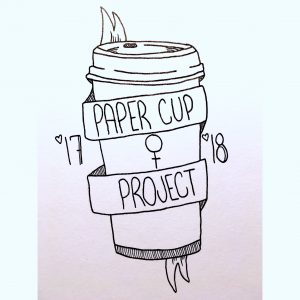#38
Pronouns: She/Her
- I saw a video of a comedian who was talking about experiencing feelings that are seemingly harmless but when examined closer, are the result of a long, painful history of discrimination and harmful perceptions (Ex: Seeing a person of colour working alongside predominantly white co-workers and thinking “Oh, good for them”)
- It’s sort of the same with women; we often give them praise or are impressed when we witness them in positions of power or working alongside men. On one hand, it is great to see them accomplishing these things but on the other hand, isn’t it a form of sexism to praise them for doing what men have been doing for years?
- Being a white woman in university and especially in my friend circles, I don’t really experience any major discrimination perse, but I do witness small, harder-to-detect moments and micro-aggressions of sexism
- I exist somewhere in the middle of the spectrum in terms of what I see on a daily basis; I don’t see a lot of oppression on a concerning level, but I don’t tend to see much gratification or social gain for women either
- Sometimes I feel as though I don’t have enough experience/knowledge to even discuss matters like these
- I was raised by my goofy dad, who I never really felt pressured by to fit into the typical social mould of a woman. I was also raised by my traditional grandma and never really felt pressured by her to be anything I wasn’t, simply because her opinions and beliefs are becoming a little more outdated as time goes on
- As a kid I never really felt like I had to wear dresses and pink and fit in with other girls my age. This sentiment changed slightly when I went into high school theatre, particularly acting; it was harder to find a place there because roles that are written for women tend to involve very feminine costume choices, and mannerisms that can be hyper-feminized as well
- So I turned to tech and behind-the-scenes work, which I felt identified me in a more butch way than acting had, which made me feel that I had to fit a very specific role to be in either field, either extremely feminine in order to act, or extremely butch in order to do tech
- When I came into university I discovered a wide range of characters to play, whose performances and storylines came from the characters themselves, and not necessarily from their gender, which was so refreshing
I found a happy medium where I just get to be myself”
- I was always a little bit iffy about wearing dresses as characters, because I personally wouldn’t wear them, so I refused to in high school to sort of defy falling into a stereotype that didn’t even apply to my own life
- I’ve become more accepting and willing to wear dresses for characters now, because I see them as just another item of clothing, that don’t have to have a gender assigned to them
- I think of wardrobe choices as part of the character and I worry more about portraying a character truthfully; hoping that my personality shines through my performance
- I am a woman, yes, but I’m also an artist, a part of the queer community, a dog lover, and a university student

















